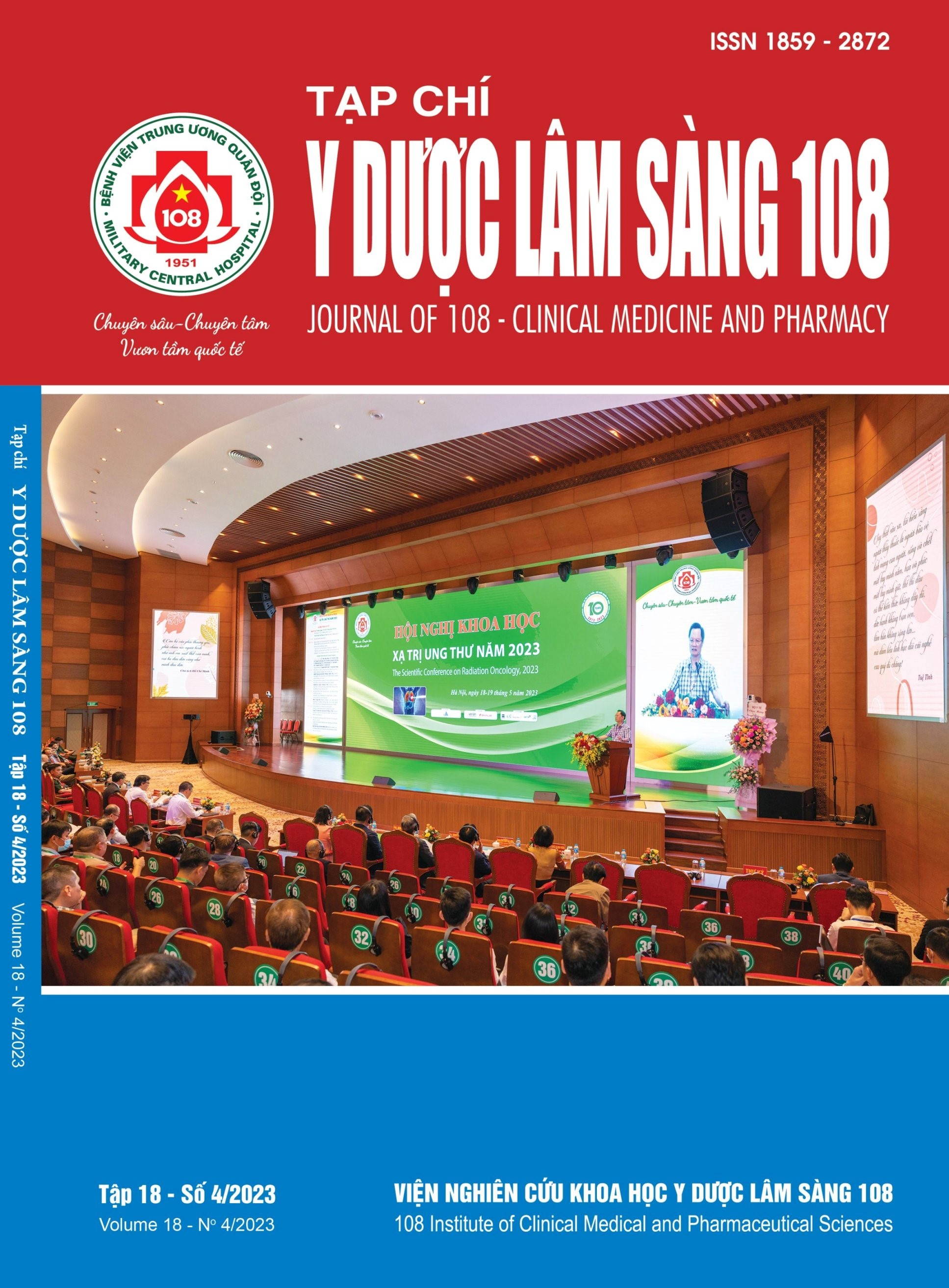Correlation between clinical risk factors and left atrial echocardiographic parameters in chronic kidney disease patients
Main Article Content
Keywords
Abstract
Objective: To investigate the correlation between clinical factors and left atrial echocardiography in patients with chronic kidney disease. Subject and method: The study was conducted on 150 subjects with chronic kidney failure who were treated at Bach Mai Hospital from April to October 2022. All patients were examined. Transthoracic echocardiography was performed to assess left atrial size and strain. Result: Glomerular filtration rate (MLCT), hemoglobin was inversely correlated with left atrial diameter (LAD) (r = -0.51, p<0.001, r = -0.27, p=0.002.). Age at cardiovascular risk (men > 60 years old, women > 55 years old) had a 2.9 times higher risk of decreased blood reservoir in the 4-chamber view compared with patients of same age without cardiovascular risk (OR = 2.9), 95% CI: 1.4-4.5). Elevated systolic blood pressure was 7.85 times more likely to have left atrial dilation than patients without systolic hypertension (OR = 7.85, 95% CI: 3.89-16.79, p<0.05). Increased diastolic blood pressure was 2.58 times more likely to have left atrial dilation than patients without diastolic hypertension (OR = 2.58, 95% CI: 1.67-6.20, p<0.05). Diabetes had a 3.59 times higher risk of decreased blood reservoir function in the 4-chamber view compared with elderly patients without cardiovascular risk (OR = 3.59, 95% CI: 1.8-6.2). Conclusion: Age at CV risk (men > 60, women > 55), diabetes, and hypertension are clinical factors correlated to size and left atrial strain in patients with chronic kidney disease.
Article Details
References
2. Dandel M, Lehmkuhl H, Knosalla C, Suramelashvili N, Hetzer R (2009) Strain and strain rate imaging by echocardiography - basic concepts and clinical applicability. Curr Cardiol Rev 5(2): 133-148.
3. Foley RN (2003) The clinical epidemiology of cardiovascular diseases in chronic kidney disease: Clinical epidemiology of cardiac disease in dialysis patients: Left ventricular hypertrophy, ischemic heart disease, and cardiac failure. Seminars in Dialysis 16(2): 111-117.
4. Gan GCH, Bhat A, Kadappu KK, Fernandez F, Gu KH, Chen HHL, Eshoo S, Nankivell B, Thomas L (2021) Usefulness of left atrial strain to predict end stage renal failure in patients with chronic kidney disease. Am J Cardiol 151: 105-113.
5. Kadappu KK, Abhayaratna K, Boyd A, French JK, Xuan W, Abhayaratna W, Thomas L (2016) Independent echocardiographic markers of cardiovascular involvement in chronic kidney Disease: The value of left atrial function and volume. J Am Soc Echocardiogr 29(4): 359-367.
6. Khwaja A (2012) KDIGO clinical practice guidelines for acute kidney injury. Nephron Clin Pract 120(4): 7.
7. Kovesdy CP (2011) Epidemiology of chronic kidney disease: An update 2022. Kidney Int Suppl 12(1): 7-11.
8. Tanasa A, Burlacu A, Popa C, Kanbay M, Brinza C, Macovei L, Crisan-Dabija R, Covic A (2021) A systematic review on the correlations between left atrial strain and cardiovascular outcomes in chronic kidney disease patients. Diagnostics (Basel) 11(4): 671. doi: 10.3390/diagnostics11040671.
9. Tanasa A, Tapoi L, Ureche C, Sascau R, Statescu C, Covic A (2021) Left atrial strain: A novel “biomarker” for chronic kidney disease patients?. Echocardiography 38(12): 2077-2082.
 ISSN: 1859 - 2872
ISSN: 1859 - 2872
